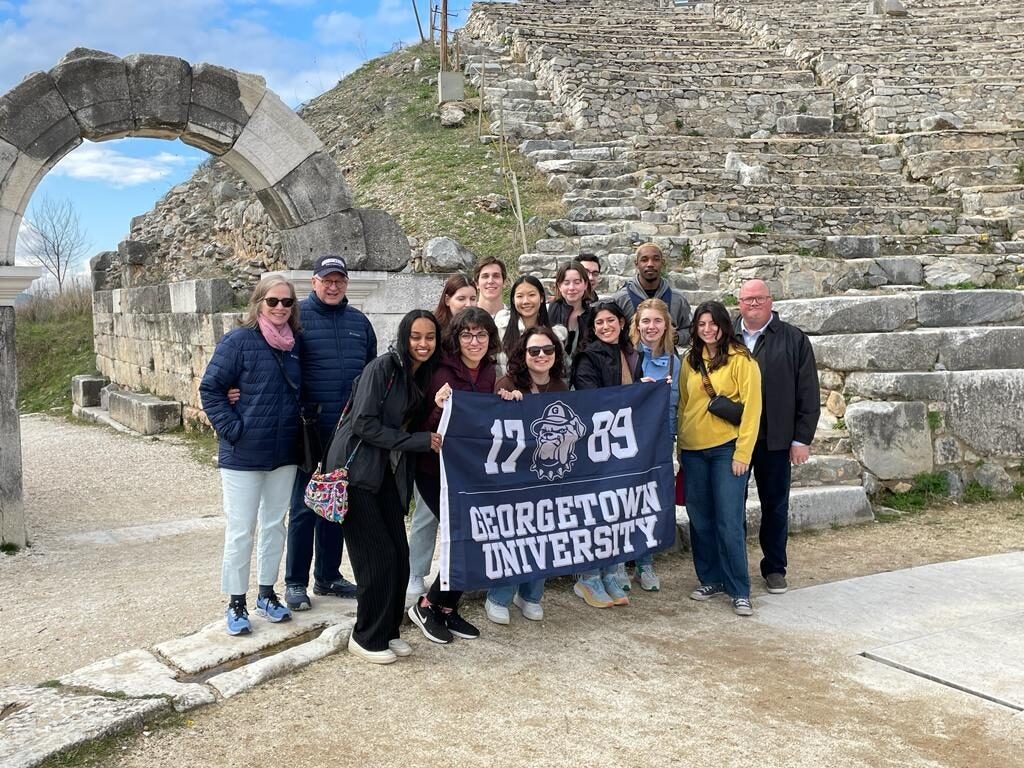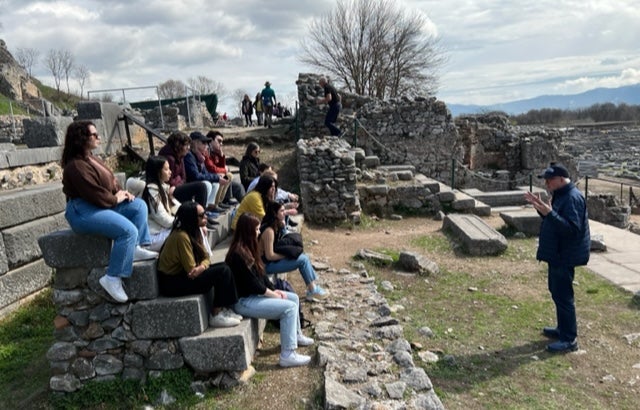Reflection: Reading St. Paul in Greece
By Paul Clement (C’25)
Right after the sun had risen on our first full day in Greece, Dr. Wickman, Director of Catholic Life, and Professors Mitchell and Lamm, both from the Department of Theology and Religious Studies, lead us to a Sunday Mass at the Metropolis Church in Thessaloniki. Looking akin to churches of the Roman tradition on the outside, the similarities ceased as we entered the heavy wooden doors. Marvelous iconography and frescoes covered just about every inch of the church’s interior. As the Mass began, the priest came up and warmly welcomed us, letting us know about the differences in the Greek and Roman signs of the Cross. The Mass itself was beautiful with singing, incense, and bells filling the church. I could not think of a better way both to begin the pilgrimage and immerse ourselves in Greek culture.
Later that day, we were all sitting within a stone’s throw from where Paul was imprisoned at Philippi. While listening to a fellow student read a poignant passage from Paul’s letter to the Philippians, within our line of view was both the cell of his detainment, the forum in which he preached, and the Christian church dedicated to him in the 4th century A.D. Without moving our heads, we could see both Paul’s struggle and ultimate success in bringing God’s word to a new community. This theme presented itself throughout the entirety of the pilgrimage. Not only did we see the communities where Paul preached the letters previously studied on the Hilltop, but we were also witnesses to how these letters bore fruit: a topic mostly incommunicable in a classroom.
In addition to the sights holding us in awe, one of the most wonderful aspects of the trip was the group. During the on-campus instruction, we didn’t interact a lot but that completely changed as soon as the trip began. Even Professor Mitchell worried about how we would all get along. But by the time we landed in Greece, everyone sincerely opened themselves up to each other, and within a day’s time, genuine friendships started to form. The authenticity of these friendships is attested in the groups’ meeting for meals after the class and pilgrimage ended.
These friendships are also indicative of what I believe is the larger influence of this pilgrimage. In addition to the knowledgeable lessons from Professor Mitchell, which were an immense blessing of intellectual formation, the physical pilgrimage further served as a formation of our hearts. Seeing the physical locations personally lent me a deeper understanding of not only St. Paul’s humanity, but Christ’s as well. I think this physical presence inevitably prompts a greater intellectual and human understanding that encompasses the Jesuit value of contemplation in action.
While the pilgrimage was only a week, its impact on both the students and faculty will last a lifetime. Seeing the acropolis, the Corinthian βημα where Paul spoke, and countless other wondrous sights will never be forgotten. The friendships made on the trip will hopefully endure for many years and always be cherished. But, most importantly, the pilgrimage formed our hearts in addition to our minds.

